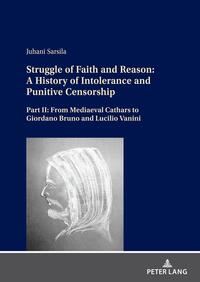
Humanists look up to Hellas as the cradle of European culture. The book spans nearly five centuries of a later epoch of this worthy tradition. Starting with the awesome high-mediaeval Cathars, the exposition proceeds in chronological order. Eventually, we meet Giordano Bruno and Lucilio Vanini, both of them red-letter heretics. The work affords cognisance of a neglected branch of learning. History of morals in general, and that of the struggle of faith and reason in particular, provides in-depth insights into the allotted fate of dissentient man. A potentially fateful nexus appears to be interweaving between book and author. Organised religion is evermore based on the politically beneficial idea of anthropomorphism or metaphysical projection. For has Man not made God in his image?